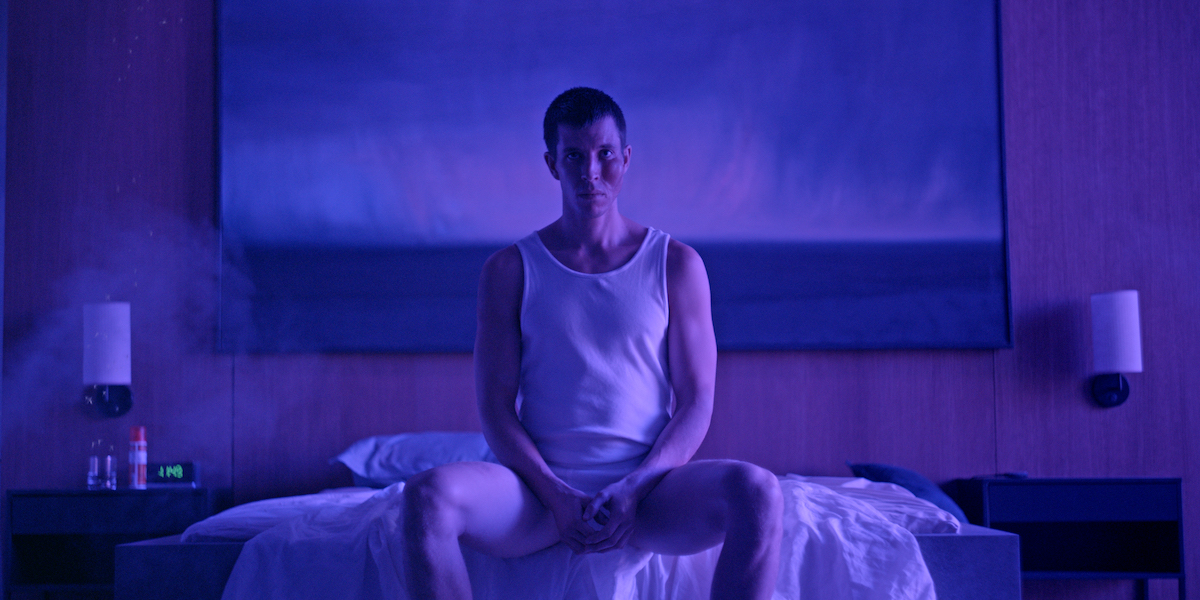What to Watch Verdict
'Mosquito State' is a collision of gorgeous insectoid cinematography and enrapturous storytelling that loses itself in the symbolism of its titular buzzers.
Pros
- +
🩸 The mosquitos steal the show.
- +
🩸 Beau Knapp plays an outcast well.
- +
🩸 Strong visual command.
Cons
- -
🩸 A tornado of ideas that fly too freely.
- -
🩸 Better watched than understood.
- -
🩸 Do not love the ending's conveyance.
Mosquito State is one of those perplexing, alluring, ever so exteriorly sleek watches that flies away into the ether. Poland's Filip Jan Rymsza uses buzzing insects to comment on America's 2007 stock market collapse in a marriage that is more expressively intriguing than endearingly functional. Wall street megalomaniacs sucked the country's financial institutions dry; mosquitos are bloodsuckers—but I feel like that's not even the metaphor Rymsza chooses. I will not dispute how this movie gripped my attention with a stranglehold, much like how I won't hold back my opinion that Mosquito State plays like conceptual hot air blown with forcefulness. I don't love it, nor could I avert my gaze?
Beau Knapp stars as Wall Street data analyst Richard Boca, whose "Honeybee" simulation model makes CEO Edward Werner mountains of profits. We meet Richard as he begins to worry that crooked traders like Beau Harris (Jack Kesy) are introducing too much chaos into the market that Honeybee cannot calculate. Outside the office, Richard pines for wine bar owner Lena (Charlotte Vega) without response after their less-than-magical meetup, which doesn't soothe his nerves. The only place Richard finds happiness is at home, surrounded by the swarm of infantile mosquitos he grants room, board, and flesh to puncture—because Richard trusts mosquitos more than humans.
Given the August 2007 introduction date at the movie's opening, added to the thematic excavation of Wall Street's monumental depression in the late 2000s, trust that Mosquito State is a flood of bad memories. Richard continually digests cable news stations covering election races that flash ghoulish images of Mike Huckabee or Rudy Giuliani, along with a youthful Barack Obama (smash cut to a The Apprentice commercial). I would say there's condemnation evident, but these clips are more stage settings that swirl ickiness as the world outside Richard's windows morphs from normal New York City skyscapes to an engine-red dystopian hue. Credit cinematographer Eric Koretz because we watch Richard's life unravel with such elegance, even when the mosquitos are present—their flight patterns in unison are rhythmic and gorgeous, as a synchronic aerial ballet.
Then again, Mosquito State is an enchantress in the way it lulls audiences in with collector wine bottles and fluttering wings like it's not an indulgent, scattershot fever dream. Richard comes home, a mosquito lays eggs in his bedside water glass, and he nurtures a swarm of viral threats in a time of West Nile fears that cause bumpy, bodily disfigurations. Ties draw between Richard's program and the cause for an American economic disaster that errantly romanticizes a day where desperate New Yorkers tragically leaped from window sills? That's the horror, that's the existential dread, but I'm not sure any of that hopelessness nor dire governmental failing supersedes that wackadoo mosquito encampment within a loner's million-dollar unit.
Herein lies my issue with Mosquito State—it's exquisite nonsense. Title cards with biblical artwork introduce new chapters like "The Egg," "The Larva," and henceforth, as Richard lashes out towards his compassionate secretary Sally (Audrey Wasilewski) or wallows in his dankly humidified apartment. Knapp plays a socially awkward recluse who's more numbers than personality with all the stammers and achingly disassociated chemistry necessary. Still, his arc with Lena is never poetically inclined, nor his throes into mosquito obsessor paced with any care. Rymsza commands a curio tale that is organically unsettling but lacking the throughlines needed between romantic heartache, industrial corruption, and creature dynamics—using "creature" loosely—to make sense of an unmistakably dismal period. If you're more style over substance, expect a different opinion than what I've typed thus far.
My summary of Mosquito State is one of awestruck frustration. Filip Jan Rymsza delivers inarguably stunning visuals with digital mosquitos blotting out sunlight through windows or their cloudy horde's choreography. But, unfortunately, he also loses control of the searing indictment leveled upon market-crasher goons, costing millions of Americans vastly more monetary losses. Divisive is the word here; there will undoubtedly be heaps of praise directed towards the ambition evident in big-swing scenic advancement. I just wish I weren't scratching my scalp so often, trying to parse religion, nature, and business from the movie about the guy who raises skeeter roommates as disfiguration welts become his source of comfort.
The latest updates, reviews and unmissable series to watch and more!
Matt Donato is a Rotten Tomatoes approved film critic who stays up too late typing words for What To Watch, IGN, Paste, Bloody Disgusting, Fangoria and countless other publications. He is a member of Critics Choice and co-hosts a weekly livestream with Perri Nemiroff called the Merri Hour. You probably shouldn't feed him after midnight, just to be safe.


